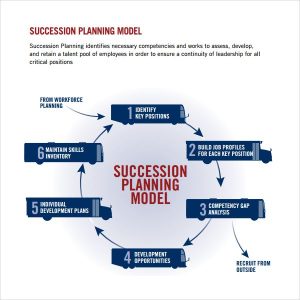
The field of human resources has seen remarkable changes and advancements over the years, greatly aided by the introduction of cutting-edge technologies and software. HR software has revolutionized the way organizations manage their workforce, streamline processes, and enhance overall efficiency. In this article, we will explore the various facets of HR software and technology and delve into their benefits.
The Evolution of HR Software
HR technology has come a long way, from basic systems that primarily managed employee records to comprehensive software solutions that encompass various HR functions such as payroll management, recruitment, performance evaluation, and more.
Initially, HR software was primarily built for record keeping and administrative tasks. Simple databases were used to store employee information and generate reports. However, with advancements in technology, the scope of HR software expanded to automate various HR functions, helping organizations save time and effort.
Today, HR software has become an indispensable tool in the HR department. It has evolved to include features such as applicant tracking systems, employee self-service portals, learning management systems, performance management modules, and much more.
The Benefits of HR Software
Implementing HR software offers numerous benefits to organizations, irrespective of their size or industry. Let’s take a look at some key advantages:
Streamlined Workflow
HR software automates routine administrative tasks, such as managing employee data, generating reports, and processing payroll. This allows HR professionals to focus on more strategic initiatives, resulting in increased overall productivity.
Improved Data Accuracy and Security
HR software eliminates the need for manual record-keeping, reducing the risk of errors and ensuring accurate data. Additionally, it provides high-level data security, protecting sensitive employee information from unauthorized access.
Enhanced Recruitment Process
HR software simplifies the recruitment process by assisting with job posting, applicant tracking, resume screening, and interview scheduling. This streamlines the hiring process and helps organizations find the best-fit candidates quicker.
Efficient Performance Management
With HR software, organizations can establish clear performance metrics, track employee progress, and conduct performance evaluations. This enables effective performance management, promoting employee growth and engagement.
Employee Self-Service
Modern HR software solutions provide employee self-service portals, allowing employees to access their personal information, submit leave requests, update contact details, and more. This empowers employees and reduces the burden on the HR department.
Data-Driven Decision Making
HR software typically comes with analytics and reporting features that enable HR professionals to derive valuable insights from workforce data. These insights aid in making informed decisions regarding talent management, resource allocation, and organizational strategies.
The Future of HR Software and Technology
The future of HR software looks promising, with advancements in artificial intelligence (AI), machine learning, and cloud computing. These technologies will further revolutionize HR processes, leading to more efficient and personalized solutions.
AI-powered chatbots will assist in answering employee queries, freeing HR professionals from mundane tasks. Machine learning algorithms will enable predictive analytics, helping organizations identify potential issues and take proactive measures. Cloud-based HR software will offer increased scalability and flexibility, allowing businesses to adapt quickly to changing needs.
Moreover, the integration of HR software with other business systems such as CRM and ERP will lead to seamless data sharing and enhanced cross-departmental collaborations.
Conclusion
HR software and technology have transformed the HR landscape, simplifying processes, improving efficiency, and empowering both HR professionals and employees. By leveraging the benefits of HR software, organizations can streamline their workforce management, foster employee engagement, and drive overall success.

